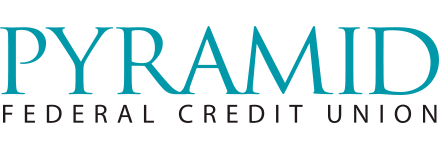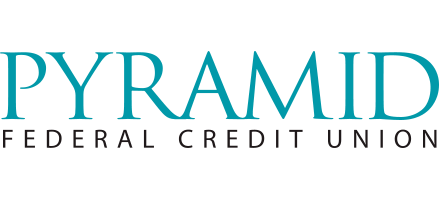Common Types of Scams

No sooner than one scam is uncovered, another is already spreading. Scammers are actively trying to find ways to con people out of their money. You can protect yourself by learning what to look for.
As a financial institution, we have a responsibility to protect our membership from fraudsters who try to take advantage of them financially. Our goal is to provide our members with tools and information to help prevent them from ever becoming a victim of a scam.
“The number one thing you can do to protect yourself,” according to Joel Smith, Vice President of Information Technology at Pyramid Federal Credit Union, “is to verify everything. If something doesn’t sound or look right, take some time to check it out before acting.”
Phishing scams
Phishing scams lure victims with fraudulent emails, texts or websites to trick you into providing personal information such as account numbers, passwords, and usernames. These messages appear to come from legitimate sources but often link to fake versions of the intended website. After victims provide personal information, thieves can access their accounts or even steal their identities. To protect yourself, never give out personal information—especially debit or credit card information, or social security or account numbers—unless you have initiated the request. Don’t click on links in a suspicious email; rather go directly to the known website and make sure you are logging in securely. You can also call the number on your debit or credit card, or account statement to verify if they were trying to contact you.
Phone fraud
Phone scams are off the charts. These often come in the form of recorded messages that direct recipients to call their financial institutions. The phone number they direct victims to call, however, does not belong to a legitimate organization. Please remember that Pyramid will never contact you and ask for your account information. On occasion, if our card processor notices some transactions on your debit or credit card that seem questionable, they will contact you to confirm the transactions are valid. In this instance, you will be given a case number to refer to the incident. They will already have your card number on file and will not need to request that information from you.
Romance and imposter scams
The allure of love can lead to emotional as well as financial disappointment. These scammers are after your heart and most likely your money. An online love interest who asks for money is almost certainly a scam artist. In the end the money will be gone as well as the person you thought you knew. Only “friend” people on Facebook or other social media and dating sites if you can verify their profiles. And, don’t give away too much personal information too soon. Be suspicious if this new friend seems to tell all too soon. Pyramid staff are trained to ask questions, specifically about large and unusual transactions as well as international wire requests. Don’t be offended, we’re trying to protect you from losing funds you will never recover.
Imposters have also pretended to be someone you know or would trust, like law enforcement, a government employee (like an IRS or Social Security Administration representative), or even a local charity. Today, caller ID spoofing is rampant, so don’t be fooled by what looks like a legitimate phone number. Your best option is to verify the official number and call them yourself.
Social media scams
Many people blindly accept “friend” requests simply because they appear to have friends in common. Fake profiles are prevalent and their goal is getting access to your personal profile information. They can use this to victimize you in a number of ways such as breaking into your home while you’re on vacation or obtain your financial data by trying to sell you something. In extreme cases, these imposters can actually be stalking you, learning about personal details of your habits, your family, and more. Protect yourself by only accepting friend requests from people you know and by making posts visible only to real and verified friends.
Unfortunately these are only the tip of the iceberg when it comes to scams, and fraudsters are coming up with new ones by the minute. For a thorough listing of common scams and frauds, the US Government offers resource information at USA.gov.
Image byGerd Altmann from Pixabay




